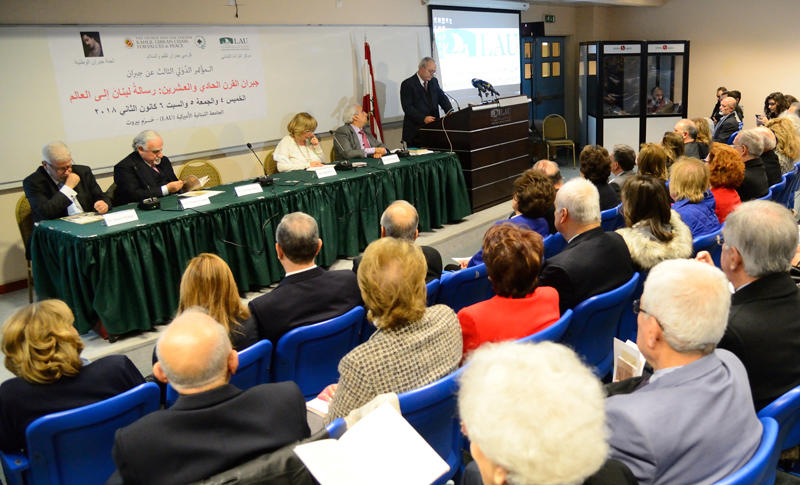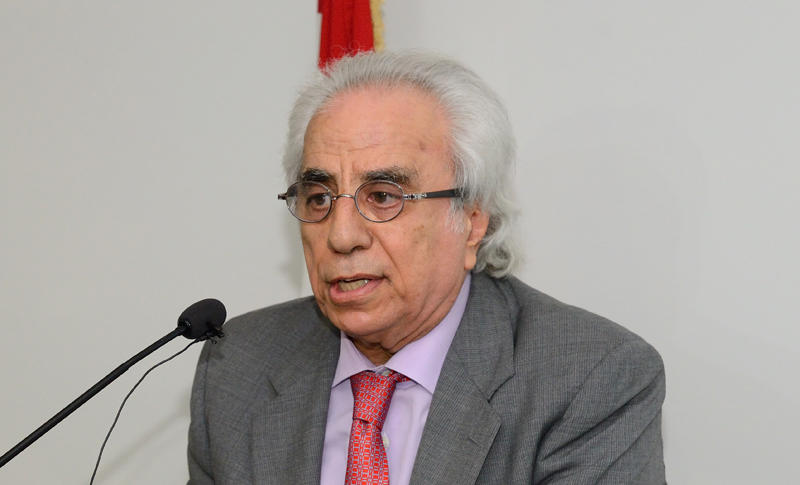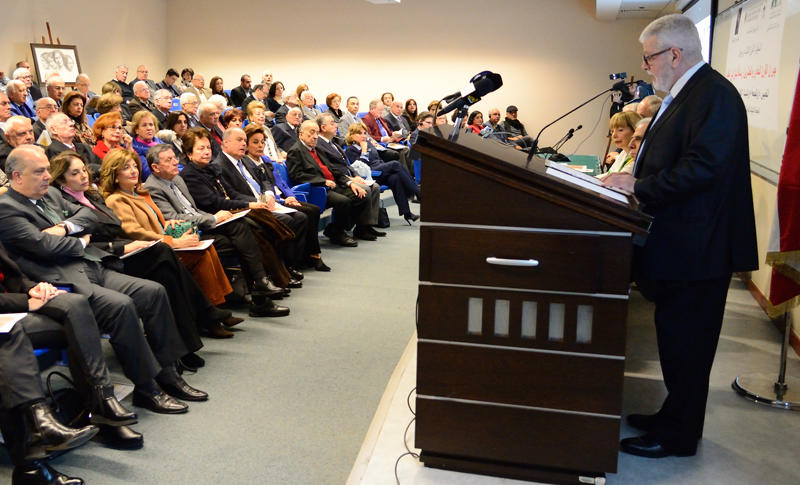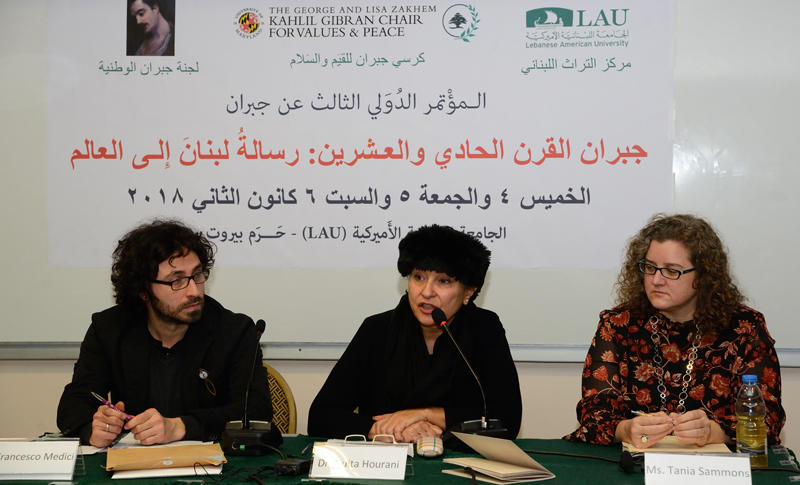Kahlil Gibran, From Lebanon to the World
A conference celebrates the legacy of one of Lebanon’s most brilliant artists.
A dedicated group of scholars confirmed that the legacy of Kahlil Gibran, 1883 – 1931, the internationally renowned Lebanese-American author, artist and poet, is stronger and more relevant than ever.
Experts from around the world gathered from January 4 through 6 for the conference “Gibran in the 21st Century: A Message to the World,” organized by LAU’s Center for Lebanese Heritage (CLH) and the Gibran Chair for Values and Peace at the University of Maryland. The gathering drew panelists and attendees from Lebanon, the United States, Egypt, Australia, India, Tunisia and the United Kingdom.
“It was important to launch a movement that does not stop at the end of the conference but continues beyond, to keep Gibran’s legacy running and alive in the memories of people and to keep up the research, studies and all other activities related to this great poet,” said CLH Director Henri Zoghaib.
Indeed, echoed Dr. Philip Salem, president of the Salem Oncology Center in Houston and author of several works on Gibran, “We are gathered here today not to talk about a dead man, but to speak about the man who is still alive. The man who still lives with us.”
According to organizers, the conference was aimed at celebrating Gibran’s journey and emphasizing the importance of his message of equality among genders, races and religions.
During the conference, scholars and researchers painted a nuanced portrait of a man both pious and critical of religious establishment, a Christian claimed by members of all faiths, and someone ahead of his time in an age of strict conformity.
“I believe his message is still very relevant,” said May Rihani, director of the Gibran Chair for Values and Peace, event co-organizer and niece of Ameen Rihani, the renowned writer, and close friend and confidant of Gibran’s.
She added, “The new generation of Lebanese, Americans, and everyone anywhere in the world needs to read these messages he talks about, which are useful for their own lives. The message is important for the new generations.”
Gibran, best known for his mystical book of prose The Prophet, has fascinated people around the world for nearly a century. He spent most of his life in the United States, writing mainly in English and Arabic within a community of Lebanese expatriate writers who would revolutionize modern Arabic literature. However, his words have touched readers throughout the world. His work has been translated into more than 100 languages, putting him on par with authors such as Shakespeare and Chinese philosopher Lao-Tzu.
In an effort to track Gibran’s far-reaching work and influence, Australian filmmaker Glen Kalem traveled to the United States, France and China to interview those who knew and studied the artist. In a documentary screened at the conference, he brought viewers to Gibran’s longtime home in Boston, his apartment in Paris, and to China to hear from a Chinese professor of Arabic literature who had taught Gibran.
Speaking of Gibran’s enduring legacy through The Prophet, Kalem said, “He can express his intentions, his soul, and a soul doesn’t die. You’ll get through to everyone… There’s a popular message that has resonated in many different cultures and for many people.”
Indeed, Gibran’s universality is what has allowed him to transcend different faiths, despite his unconventional nature.
“Kahlil Gibran wasn’t a traditional Christian, but he was a true Christian,” said US-based religious scholar and cleric Reverend Paul-Gordon Chandler, author of In Search of a Prophet. The scholar detailed the importance of Gibran’s timeless message, noting that the younger generations are increasingly drawn to general spirituality rather than conventional religion, as Gibran had been in his time.
For children’s book author Helen Chiha, an audience member from Australia, Gibran is an inspiration and basis for her work.
“I’m writing an adaptation of The Prophet for children. It’s about the message,” said Chiha, who learned about the conference from Kalem. For most of her target audience – readers between five and six years old – this will be their introduction to Gibran.
“Gibran has an enduring legacy,” said Rihani. “His message will be with us today, tomorrow and many years to come.”



